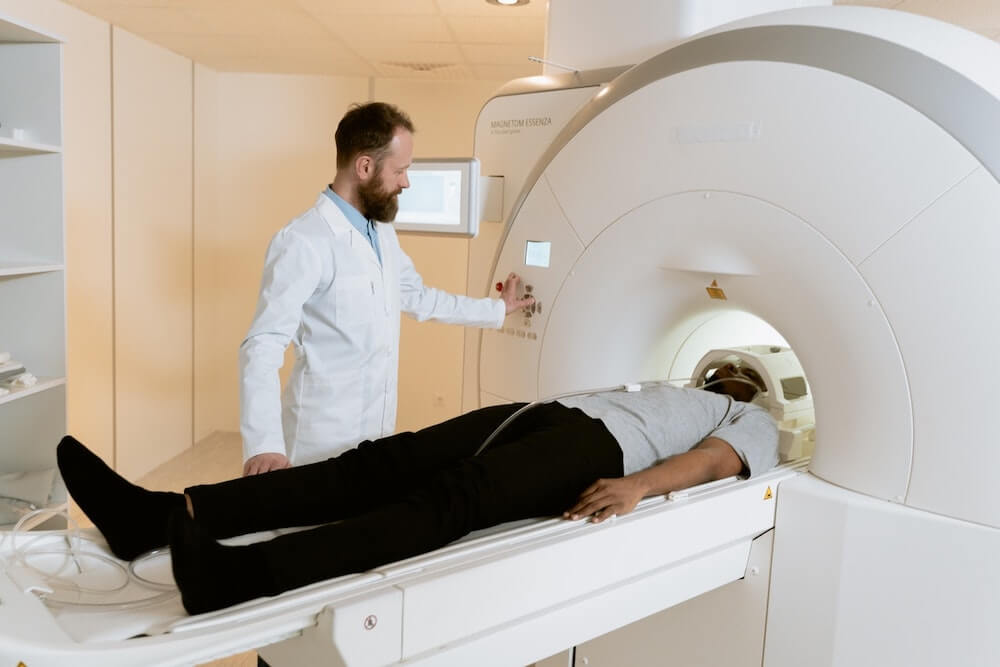You wake up with the worst headache of your life. Sure, you are a person that gets a headache sporadically but this headache feels different to you. You tried the usual ibuprofen, acetaminophen, and Excedrin but did not get any relief. Rightfully, you are scared that something more serious is going on. You think to yourself, do I need a brain MRI for my headache? Let’s find out when a brain MRI may be needed.
What Is An MRI
An MRI (magnetic resonance imaging) is a noninvasive imaging technique used to look at soft tissue to help in diagnosis. The images from an MRI are higher definition and more sensitive and specific than other images such as X-ray or CAT scans. Anatomic detail is better with an MRI.
MRI uses magnetic fields that excites hydrogen atoms and results in an image to help with diagnosis. This makes it safer for pregnant women and children than the radiation from Xray or CAT scans.
Contrast Versus Non-contrast MRI
A non-contrast MRI identifies most disease pathology. An MRI with contrast is only indicated for certain pathology or to better characterize pathology found on a non-contrast MRI. When contrast administration is considered, your kidney function and allergy to contrast will need to be assessed.
Indications For Brain MRI
The majority of neurological diseases can be diagnosed with a thorough history and neurological examination. Additional testing such as a MRI supports or confirms the diagnosis and excludes other possibilities.
Just because an MRI provides higher quality images does not mean it is the best modality for all disease pathology. Xray and CAT scans provide better images of bone and calcified structures. CAT scan is a faster and more efficient technique to identify blood in the brain.
When is an MRI useful?
- Stroke
- Hemorrhage
- Vascular anomalies (aneurysm, arteriovenous malformations, cavernoma)
- Tumors and masses
- Infections and abscesses
- Traumatic head injury
- Neurodegenerative disorders and dementias
- Inflammation
- Seizures
- Headaches
Contraindications For Brain MRI
Because MRI uses a strong magnet, metal can cause artifacts and electronic devices can malfunction.
Items with potential contraindication includes:
- Metal objects – bullets, mechanical heart valves, surgical implants, plates, screws, staples, clips, metal teeth
- Electronic devices – pacemaker, deep brain stimulators, insulin pumps, nerve stimulators
However, newer orthopedic implants, staples, clips, stents may be safe for MRI. Please let the radiologist know if you have any implants or surgical hardware.
When Do You Need A Brain MRI For A Headache
Although a brain MRI may be useful to exclude secondary causes of headaches in the right setting, it does not diagnose the type of headache. You may not need a brain MRI if you have a normal neurological exam and no red flag symptoms. Red flags symptoms that require brain imaging include thunderclap onset, change in characteristics, focal neurological findings, fever, or older age. A neurologist will determine if you need a brain MRI versus a head CAT scan.

